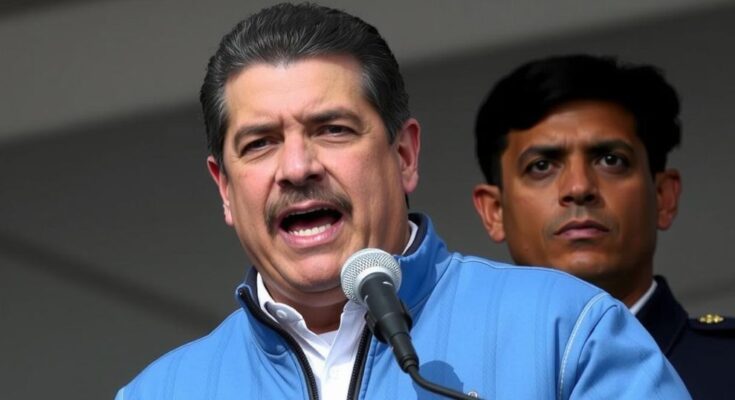Nicolas Maduro’s inauguration for a third presidential term has prompted widespread international condemnation, with key figures in the U.S. and EU denouncing the electoral process. While some countries, including Russia, express support for Maduro, others impose sanctions and question his legitimacy, reflecting a highly politicized and fractured situation in Venezuela.
Nicolas Maduro’s recent inauguration for a third term as President of Venezuela has been met with significant international condemnation due to allegations of electoral fraud in the July elections. Despite widespread criticism, including sanctions and denouncements from various countries, Maduro asserts his legitimacy and has continued to enjoy support from a few allied nations. The political landscape surrounding his inauguration is marked by stark divisions and a lack of widespread international recognition.
In his statement, U.S. Secretary of State Antony Blinken emphasized that Maduro “clearly lost” the election, referring to the inauguration as “an illegitimate presidential inauguration.” Concurrently, the U.S. Treasury Department announced sanctions against eight senior Venezuelan officials deemed responsible for the country’s repression of democracy. Notably, incoming U.S. President Donald Trump acknowledged the Venezuelan opposition as “freedom fighters.”
The European Union also declared that Maduro lacks legitimate authority as the president, with Foreign Policy Chief Kaja Kallas stating that he “lacks all democratic legitimacy.” Additionally, the UK Foreign Secretary David Lammy labeled Maduro’s claim to power as “fraudulent.” The UN Secretary-General, Antonio Guterres, voiced strong condemnation of the arbitrary detentions that have occurred since the elections, urging for the release of detained individuals, which includes opposition figures and journalists.
In contrast to the widespread criticism, Russian President Vladimir Putin extended congratulations to Maduro, with an envoy relaying the message during the inauguration ceremony, attended by only a few allies, namely Cuban President Miguel Diaz-Canel and Nicaraguan President Daniel Ortega. Notably, other traditional leftist allies, including Brazilian President Luiz Inacio Lula da Silva, conspicuously opted not to participate in the inauguration proceedings, underlining Maduro’s growing isolation on the international stage.
This article discusses the international reactions to Nicolas Maduro’s inauguration as President of Venezuela for a third term, amidst accusations of electoral fraud and undemocratic practices. The context of this event includes mounting criticisms from the United States, European Union, and the United Nations, alongside sanctions placed on Maduro and his associates, reflecting a broader narrative of political strife in Venezuela. Historically, Maduro’s presidency has been characterized by significant challenges, including economic collapse and allegations of human rights abuses.
In summary, Nicolas Maduro’s inauguration has intensified international scrutiny and condemnation due to allegations surrounding the legitimacy of the electoral process. While Maduro maintains claims to authority, the reactions from the U.S., EU, and UN underscore a significant divide regarding the political situation in Venezuela. The ceremony’s low attendance from traditional allies signals a deteriorating international standing for Maduro’s administration, marking a pivotal moment in Venezuela’s ongoing political crisis.
Original Source: www.barrons.com




